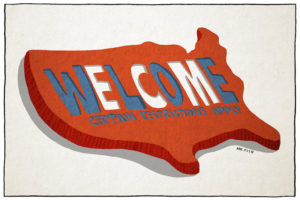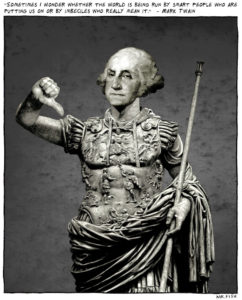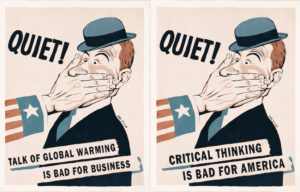A Vagueness in Obama’s Message
Hopefully, the results of the New Hampshire primary will eliminate the words hope and change from his presidential campaign. Maybe I am too cynical or too old or too disillusioned from being burned by past failed crusades. But words and elevated oratory are not enough for me.Hopefully, the results of the New Hampshire primary will eliminate Barack Obama’s use of the vague and misleading words hope and change in his presidential campaign.
With early contests finished in two small states with disproportionate influence — New Hampshire and Iowa — we move into bigger states more typical of the rest of the country. But even if the two small states are untypical, lessons can be drawn from them, particularly from New Hampshire.
The most important to the Democrats is to avoid a campaign like Obama’s, built on his soaring words of hope and change.
I’ve been put off by those words, which became the centerpiece of Obama’s campaign. Maybe I am too cynical or too old or too disillusioned from being burned by past failed crusades. But words and elevated oratory are not enough for me. Nor were they enough for New Hampshire Democrats.
They wanted substance. Although the unemployment rate is not especially high in New Hampshire, too many jobs are in low-pay retail and service and have small or no health insurance benefits. A union leader in Concord, N.H., told me that many of the state’s residents have to work two or three jobs. Sen. Hillary Clinton, ridiculed by her many critics for policy-heavy speeches and question-and-answer sessions, was in sync with voters facing an uncertain economic future.
Clinton captured the Democratic base. She beat Obama 40 percent to 31 percent among union households, and won by 15 points among voters with households earning less than $50,000 a year and by 18 points among voters with no more than a high school diploma. “Voters in the primary election were looking for a candidate with whom they agreed on the issues rather than a candidate whose personal qualities appealed to them,” said CBS News political consultant Monika L. McDermott in an analysis of exit polling. “This was likely a key to the Clinton victory.”
Women were, too. They favored Clinton 46 percent to 29 percent. The political reporters, drawn to simple narratives and engaging anecdotes, attributed this big margin to Clinton’s brief show of emotion in a coffee shop. I think it was something more basic: the vote of the overworked woman juggling a household, a job or two, children and a worried, discouraged spouse. I don’t have any statistics to prove this, but neither do the reporters enamored of the “Hillary’s tears” explanation. Common sense tells me my theory is valid, along with many conversations with people worried about hard times.
Obama’s fans invoke the name of Robert Kennedy when they are talking about their candidate. There was, however, a big difference between Kennedy and the way Obama has campaigned so far.
Kennedy was an edgy, high-risk politician who wasn’t afraid of confrontation. In speeches and in symbolic gestures he told the world he was on the side of the poor and the middle class. He visited Cesar Chavez, a powerful gesture that proclaimed his support of the farm workers and his opposition to the powerful growers who ran California agriculture. As U.S. attorney general, he went to impoverished Southern areas and sent his aides south on dangerous missions to enforce the law against segregationist opposition.
So far, Obama has offered a gentler approach, everyone around the table, drug companies, doctors, health care reformers, lawmakers, presided over by a compassionate Obama who believes in the power of hope and change.
As John Edwards has pointed out, that won’t work. Yes, Edwards is still in the race, although he has dropped from the attention of the national political media after his third-place finish in New Hampshire. Perhaps another reason Edwards has lost coverage is that two-person narrative is much easier for reporters to handle.
And remedies are complex, as Clinton points out, to the boredom of the press corps.
Obama is certainly capable of taking his message beyond the vagueness of hope and change and bringing it into the streets where people live, work and lose their jobs. He demonstrated his understanding of such an approach in 2005 when he spoke at the Robert F. Kennedy Human Rights Award ceremony in Washington, D.C.
“Within the confines of these walls and the boundaries of this city, it becomes very easy to play small ball politics,” he said. “… And yet as this goes on, somewhere another child goes hungry in a neighborhood just blocks away from one where a family is too full to eat another bite. Somewhere another hurricane survivor still searches for a home to return to or a school for her daughter. Somewhere another 12-year-old is gunned down by an assailant who used to be his kindergarten playmate and another parent loses their child on the streets of Tikrit.”
There was bite in those words, a hint of a politician unafraid to fight the powerful.
Obama will get plenty of conflicting advice, and he may be conflicted himself. As an African-American, he will be warned against being divisive. People will tell him that blacks will come out for him under any circumstances. What he has to worry about are whites, Latinos and Asians.
I hope he doesn’t follow that advice. Hope and change are appealing and nonthreatening words for the more affluent white people who voted for Obama in New Hampshire and Iowa. But they are not enough for the battle ahead. If he’s bland, if all he talks about are vague concepts, not enough people — black, white, Asian or Latino — will follow.
Kennedy’s path for America was difficult but honest. Nothing would come easy. Longtime enemies wouldn’t sit around a table like new best friends. That’s life in most of America, and Obama should acknowledge it.
Your support matters…Independent journalism is under threat and overshadowed by heavily funded mainstream media.
You can help level the playing field. Become a member.
Your tax-deductible contribution keeps us digging beneath the headlines to give you thought-provoking, investigative reporting and analysis that unearths what's really happening- without compromise.
Give today to support our courageous, independent journalists.





You need to be a supporter to comment.
There are currently no responses to this article.
Be the first to respond.